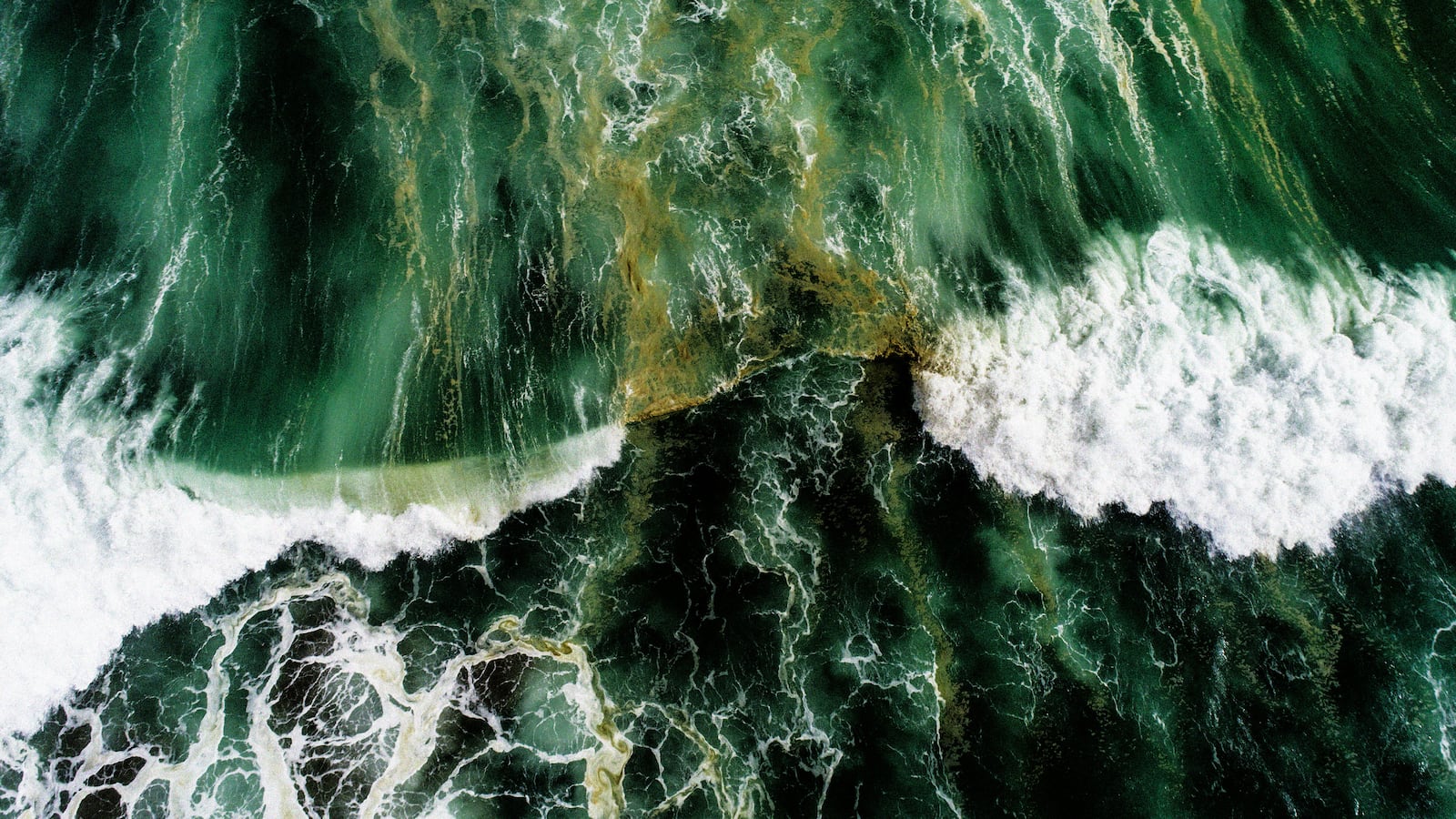“Ocean blue” may no longer be the most accurate way to describe the planet’s waters. A new study published in Nature on Wednesday finds that the color of the ocean has changed significantly over the last 20 years—all due to climate change.
The color shifts, according to the new study, can’t be explained by natural factors alone. These changes have occurred across 56 percent of the world’s ocean, turning the waters greener over time (especially near the equator).
That color change seems to be the result of changes in the marine ecosystems—driven by climate change.
“I’ve been running simulations that have been telling me for years that these changes in ocean color are going to happen,” study co-author Stephanie Dutkiewicz, a scientist at MIT, said in a press release. “To actually see it happening for real is not surprising, but frightening. And these changes are consistent with man-induced changes to our climate.”

A satellite image of an algae bloom in the ocean.
NASA and Joshua StevensGreener waters occur when there’s more life in the ocean—particularly phytoplankton, which grow abundantly in the upper ocean depths. That might sound good, but it’s actually a grim indicator. Phytoplankton play an essential role in capturing and storing carbon dioxide—so increases in carbon dioxide inevitably give rise to phytoplankton blooms. These explosions in population mean greener waters.
The new study tracked satellite measurements of the world’s oceans taken from 2002 to 2022, across seven different wavelengths. Across those 20 years, there was a clear trend in color variation that correlated with increases in greenhouse gasses. In fact, the satellite measurements fit perfectly with what a separate model had predicted based on greenhouse gas additions.
The biggest implications of the new study aren’t simply a cosmetic change for Earth’s oceans. Color changes reveal that plankton and plant populations in the oceans are changing rapidly, which could have grave impacts for marine ecosystems. For example, fish populations could take a hit—which could have downstream effects for communities that rely heavily on fishing for food and commerce. Changes to ocean health could also slowly degrade the stability of other waters around the world.
“Changes in color reflect changes in plankton communities that will impact everything that feeds on plankton,” said Dutkiewicz. “It will also change how much the ocean will take up carbon, because different types of plankton have different abilities to do that. So, we hope people take this seriously. It’s not only models that are predicting these changes will happen. We can now see it happening, and the ocean is changing.”






